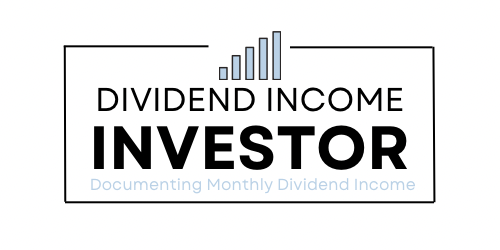Broke? – 5 Lessons You Can Learn from Being Broke – Guest post by Money Done Right.
Being broke can feel incredibly stressful or even overwhelming. But short-term can teach valuable lessons and help us develop better financial habits.
People who have struggled with money in the past often have a different financial outlook from those who have been comfortable.
This article will cover a few of the best lessons to take away from being broke. No matter how much you’re struggling now, there will be a silver lining if you grow through the experience.
You Can Do It
It’s tough to adjust to being broke if you’re used to having more disposable income. You will have to overcome a variety of unique challenges. For example, you might be in the habit of eating out regularly or buying clothes. Perhaps you have become used to products from luxury brands.
Living without money forces you to be resourceful in ways that you may not be used to. When you’re broke for the first time, it’s normal to feel like you don’t have the skills to live on a tight budget. You won’t be able to rely on paid services to manage your day to day life.
On the other hand, this is exactly what can make the experience so rewarding. Being broke will teach you incredibly valuable life skills such as cooking, cleaning, and fixing household items rather than sending them to a professional. You’ll also learn to be more disciplined and self-sufficient, which will continue to be valuable even if your financial situation changes.
There’s Nothing Wrong with Needing Support
Another difficult aspect of having less money is accepting a greater degree of reliance on friends, family, and others in your support network. Don’t be afraid to ask them for help. If you have any roommates, see if there’s anything you could do to save money together.
While cooking is obviously more affordable than eating out, you can spend even less by pooling money with roommates to buy ingredients and prepare meals together. In general, buying in larger volumes leads to lower prices, and bulk food can be surprisingly inexpensive.
Similarly, you can find informative financial advice on a wide range of blogs and forums, including sites that cater directly to people on extremely limited budgets. Learning is the first step toward gaining more control over your finances. This is especially true if you’re managing money on your own.
Finally, don’t forget that poverty is associated with a number of mental health conditions. The United States is far behind the rest of the developed world in terms of access to care. But there are treatment options available if you’re struggling with money.
You Don’t Need Expensive Things
Just as you’ll learn how to take things into your own hands, you’ll also come to appreciate your new lifestyle. In fact, you may find new activities and interests that you otherwise wouldn’t have considered.
Rather than always going out with friends, for example, you could have them over for a game night in. You’ll end up spending more quality time together instead of relying on paid items and experiences—saving money doesn’t always have to be a sacrifice.
The consumer economy tells us that we need to keep buying new things. But this isn’t necessarily in our best interest. Being broke will teach you that life can be even more rewarding when it doesn’t revolve around consumption.
Budgeting Isn’t as Hard as it Sounds
If you tend to spend money freely, budgeting for the first time can be one of the most challenging adjustments of being broke. When you’re struggling with your finances, it’s vital to be vigilant about every dollar in order to make your income stretch as far as possible.
Fortunately, budgeting doesn’t have to be intimidating, and there are more tools than ever to help you stay on top of your money. While there’s nothing wrong with using a physical notebook, many people achieve better results by budgeting through an online service or mobile app.
YNAB, for example, makes it easy to set up limits for areas like groceries, travel, and utilities and track spending across categories. Different platforms are designed for different approaches to budgeting. Find one that works with your strategies.
The most important thing to remember when budgeting is that gradual, consistent adjustments are more effective and sustainable than trying to change your entire financial mindset all at once. Remember to consistently review bank and credit card statements and adjust your budgeting goals based on prior results.
While budgeting is almost necessary for people with limited funds, it’s still a crucial skill that’s effective in any situation. You’ll learn how to recognize bad money habits. Being broke will teach you how to make the right adjustments to reach your short- and long-term financial goals.
Debt Is a Slippery Slope
Many Americans think of debt as a normal part of life, and it’s easy to ignore how much you’re spending on interest when you’re financially comfortable. When you’re broke, you simply can’t afford to spend money on interest, especially credit cards and other forms of high-interest debt.
Credit cards often charge 20% or more in interest, costing you $500 per year on a balance of just $2,500. Getting out of debt is one of the best things you can do for your financial health, and this experience will show you how easy it is to waste large amounts of money by living with debt.
If you’re already in debt, consider refinancing with a personal loan or balance transfer credit card. These options can help you reduce your interest rate or even avoid interest entirely, and you may be able to pay off your balances over a longer period of time.
To avoid going further into debt later on, start an emergency fund to cover any unexpected costs. Rather than charging these expenses to a credit card, you’ll have cash to fall back on in a worst-case scenario. A few hundred dollars will go a long way when something comes up.
Nobody wants to be broke, but that doesn’t mean you can’t treat it as an opportunity for growth. These are just a few of the most common lessons people learn from being broke.
Guest post from Money Done Right – a website devoted to helping everyday people make, save, and grow money.


 Flexible Work Arrangements – 17 Reasons Why Flexible Work is Superior to Full Time Jobbing
Flexible Work Arrangements – 17 Reasons Why Flexible Work is Superior to Full Time Jobbing
